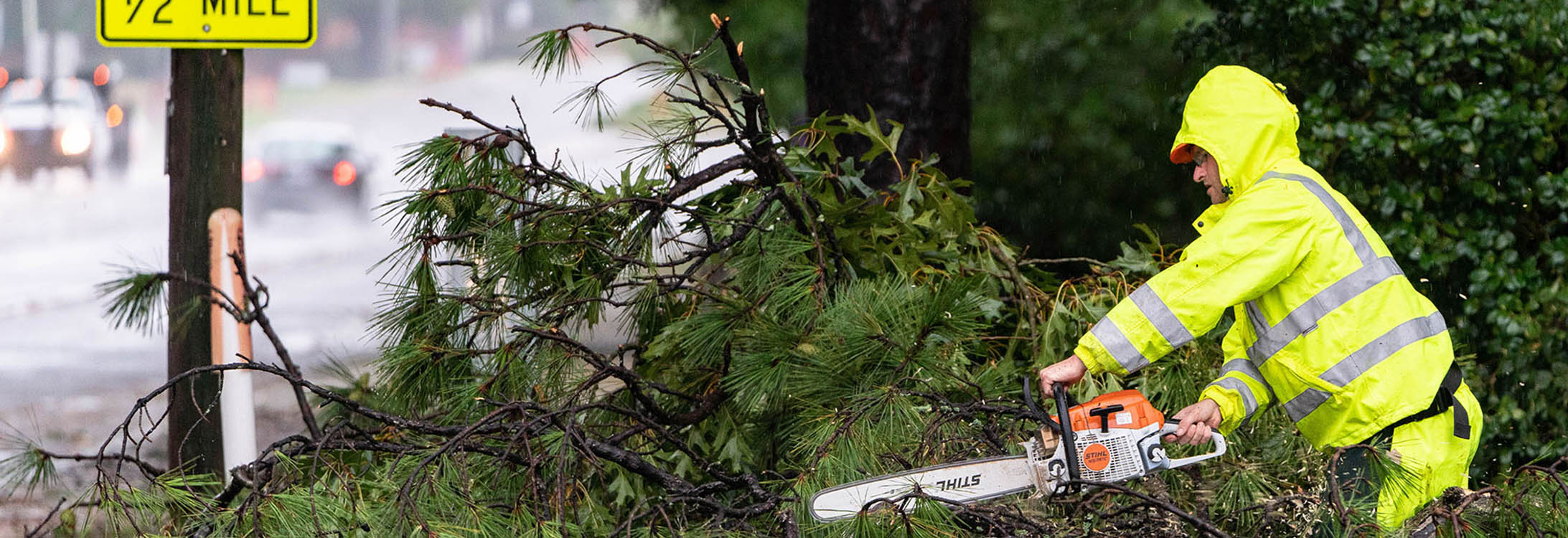BUILDING DISASTER RESILIENCE
ECU professor part of $16 million grant to study resiliency of coastal communities
An East Carolina University professor is part of a team of researchers that has received a National Science Foundation Coastlines and People grant totaling more than $16 million to study the increased intensity of hurricanes as well as address the equity, economic prosperity and resiliency of affected communities.
Dr. Meghan Millea, professor of economics and interim director of ECU’s Natural Hazards Research Center, will work with researchers from 11 universities across the country on the grant.

East Carolina University professor of economics Dr. Meghan Millea. (Contributed photo)
Foundational research for the project has taken place over the past 15 years in eastern North Carolina. While that principal research mainly captured affected homeowners — specifically those with home insurance policies — the new grant will increase the scale of the project and allow it to expand in two directions.
“One will consider the degree to which climate change is increasing the frequency and intensity of hurricanes,” Millea said.
“The second: We’re going to try to look beyond homeowners to consider the more vulnerable populations, which include renters and potentially even people without homes. We’re trying to expand what we know about the human impacts of storms and recovery in a more inclusive way. To get to that level of detail, we will be working with community partners because this is data that does not exist in these government-collected housing survey instruments.”
The grant also allows the project to expand to new locations. Looking at the various effects on coastal, urban and rural communities, three locations will be the target of the research:
- Eastern North Carolina
- Port Arthur, Texas
- Houston, Texas
Millea says ECU is perfectly positioned to lead the research project in eastern North Carolina.
“You need the local university to be the conduit to the service area. And of course, ECU has existing community partnerships which have been fostered by ongoing community engaged projects,” she said.
“This is very much what ECU is about. We’re interested in doing things that impact our region. Hurricanes, eastern North Carolina … that’s us,” she said.
As one of four co-principal investigators on the grant, Millea said she is excited to lead the education component of the project that includes the recruitment, professional development, and mentoring of undergraduate, graduate and postdoctoral researchers.
“The professional development component will involve students and postdocs learning to work together across disciplines,” Millea said. “The dialogue across disciplines is very different so they will learn how to work on interdisciplinary teams.”
Part of the Coastal Hazards, Equity, Economic prosperity and Resilience (CHEER) hub, the multidisciplinary and multi-university team will focus on better addressing issues of equity and economic prosperity when it comes to natural disasters.
As part of that effort, the team will work with the Bill Anderson Fund and the McNair Scholars Program to recruit students and postdocs from historically underrepresented groups.
“The goal is really to make sure that as we are recruiting students to participate in this work, we are also developing the next generation of natural hazard researchers,” she said.
“This work is critical both for coastal communities and inland areas where strong storms impact the ways people live much more frequently than in the past,” said Dr. Sharon Paynter, ECU’s acting chief research and engagement officer said. “By incorporating diverse viewpoints, this team and their partners will be well positioned to understand how resilience, equity and economic conditions collide and how to mitigate the effects of natural disasters. This work is another example of ECU faculty delivering high quality research to further our goal of being a national model for student success, public service and regional transformation.”
In total, the project will consist of 19 faculty members across various disciplines and expertise including civil engineering, sociology, atmospheric sciences, coastal oceanography, public policy, urban planning and economics. In all, 11 universities, including the University of Delaware — the lead institution on the grant — will participate in the five-year project.
“I’m super proud of the work. It’s always a team effort when something like this happens. And ECU has a good team of people that have been very helpful in facilitating getting this off the ground,” Millea said.
Related
Hurricanes and Migration: Case studies guide future disaster response
ECU’s David Lagomasino to Help Assess Everglades Mangrove Recovery Post-Hurricane Irma
Hurricane Information
ECU Alert: Hurricane Safety
Hurricane Off-Campus Resources
Hurricane Preparedness
